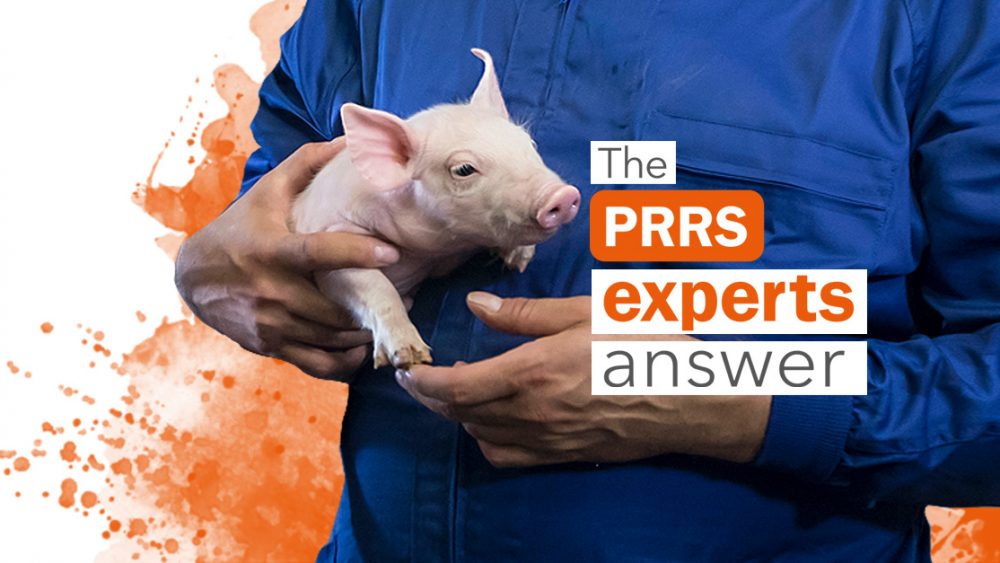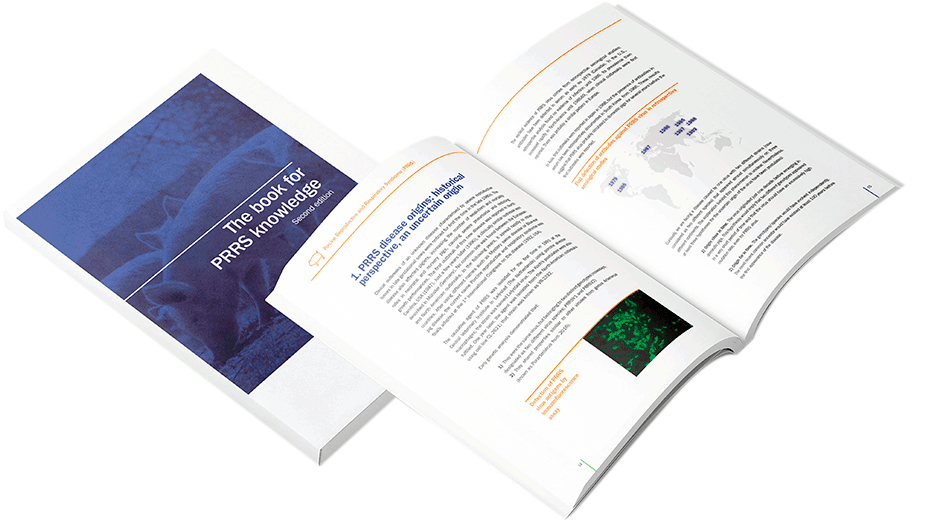On a PRRS unstable farm, the efficacy of piglet vaccination against other diseases (Edema disease, PCV2 and M. hyo) was lower than expected. Was it related to immunosuppression by PRRS virus?
There are a variety of factors responsible for the immune response to a given antigen in pigs. When pigs experience immunosuppression by any factor and/or factors, normal immune response can’t be elicited due to the lack of inflammatory cells and cytokine networking.
There are several well-known pathogens that affect the pig immune system such as CSF, PCV2, and PRRSV.
These viral pathogens attack either immune cells and/or lymphoid organs which leaves the affected pigs vulnerable to common pathogens and leads to a poor response to commercial vaccines.
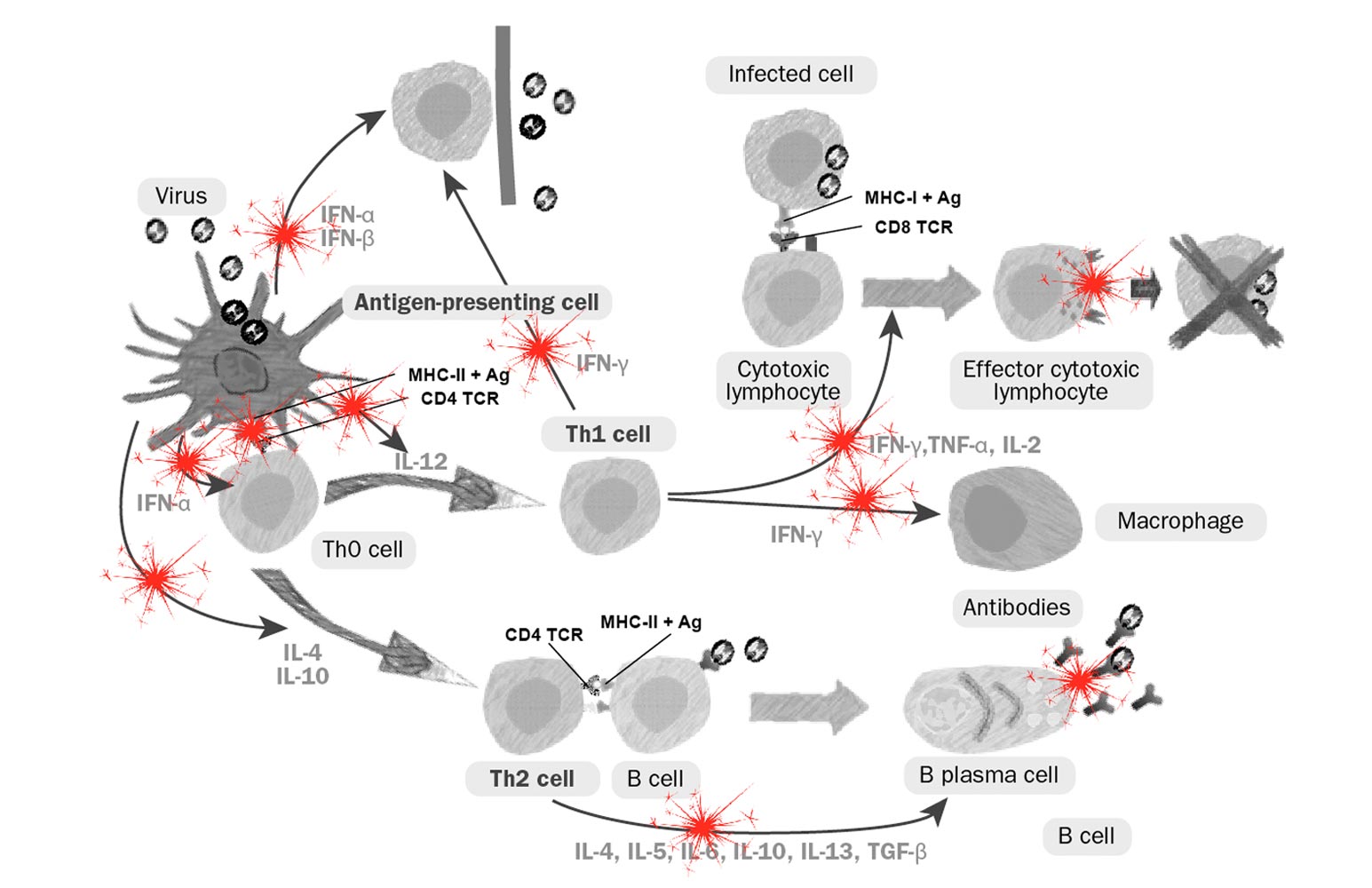
Fig 1. It is widely known that this virus is able to evade the host immune response by several mechanisms. The image shows PRRS virus immune dysregulation on the antigen presentation process and Th polarisation (Th1 and Th2). Source: HIPRA
Oedema disease vaccines, PCV2 or Mhyo vaccines as well as other vaccines do not work appropriately in pigs infected with these pathogenic agents.
Serological surveillance indicated that the PRRSV infected farms showed very inconsistent antibody levels for various viral and bacterial antigens (Lyoo. Unpublished data)
For PRRSV in particular, T cell immune response was transient and variable in PRRSV infected pigs (Murtaugh, 2004) and inflammatory cytokine (IL-10) level was much higher than in healthy animals (Ko et al 2016).
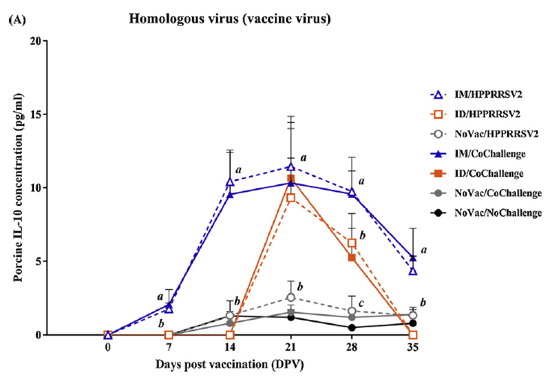
Fig 2. IL-10 levels in different challenged groups in a PRRS virus trial compared to non vaccinated and/or non challenge group. Notice the higher levels of IL-10 regardless the challenge group compared to the non infected animals. Source: HIPRA
On commercial pig farms, PRRSV infected groups showed a high incidence of severe respiratory diseases and a high mortality rate.
Based on the available data, PRRSV is immunosuppressive and significantly reduces the level of both CMI and humoral immune response to the given antigens such as vaccination.
Therefore, farms suffering from PRRS are mentioning the following comment, a most likely common complaint.
“On this farm, they vaccinate piglets against Verotoxin (Oedema disease), PCV2 and M hyo. and they think that the efficacy of those vaccines was reduced during the severe PRRS situation.”
How can we provide a better immunization to piglets in this situation?
The following objectives are needed to be achieved if we look for a successful vaccination program on PRRSV infected farms:
- Controlling PRRSV by practicing PRRSV-free Artificial insemination, herd closure and/or vaccination
- Elimination of the PRRSV if posible
- Acclimate gilts and keep PRRSV-free sows to produce PRRSV-free piglets
- Avoid vaccinating PRRSV infected age groups (adjust vaccination program by either vaccinating early or delay vaccination to avoid active viremic state)
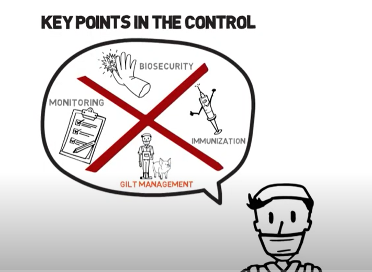
Click on the image to learn more about the key points when controlling PRRS
You can ask your own question! Visit Pig333.com and submit your question to the experts.

University of Konkuk, South Korea

